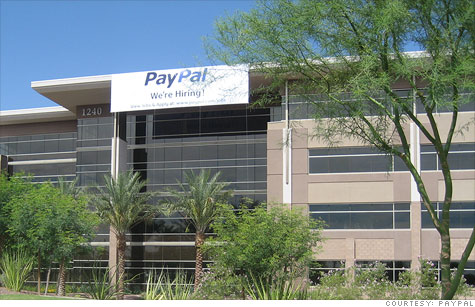
And governors around the country, smelling blood in the water, have stepped up their courtship of California companies. Officials in states like Florida, Texas, Arizona and Utah are telling California firms how business-friendly they are in comparison.
Companies are "disinvesting" in California at a rate five times greater than just two years ago, said Joseph Vranich, a business relocation expert based in Irvine. This includes leaving altogether, establishing divisions elsewhere or opting not to set up shop in California.
"There is a feeling that the state is not stable," Vranich said. "Sacramento can't get its act together...and that includes the governor, legislators and regulatory agencies that are running wild."
The state has been ranked by Chief Executive magazine as the worst place to do business for seven years.
"California, once a business friendly state, continues to conduct a war on its own economy," the magazine wrote.
That is about to change, at least if Lieutenant Governor Gavin Newsom has anything to say about it. Newsom is developing a plan to address the state's economic Achilles heels, and build on its strengths. It will be unveiled at the end of July.
"California has got to get its act together when it comes to economic development and job creation," he said.
While not all companies investing elsewhere are doing so for economic reasons, some are shopping around for lower costs, lighter regulations, stable leadership and government assistance and incentives.
The most popular places to go? Texas, Arizona, Colorado, Nevada, Utah, Virginia and North Carolina, said Vranich. All rank in the Top 13 places to do business, according to Chief Executive.
No budget, no pay for California lawmakers
After 15 years in Monterey Country, Calif., Feel Golf relocated its headquarters to Florida earlier this year after it acquired Pro Line Sports, which was based in the Sunshine State.
"The whole state is a bureaucratic Santa Claus," said Lee Miller, chief executive of the golf equipment company, of his former home. "There's a very high cost of doing business."
In Florida, he found a better work pool, lower operating costs and no personal income taxes.
"Overall, it's just a better environment," he said.
PayPal opened a new customer services and operations center in Chandler, Ariz., in February, bringing 2,000 jobs to the area. The San Jose, Calif.-based tech firm, along with its parent eBay, also added 1,000 jobs in Austin, Texas, and expanded operations in Utah.
"They have business-friendly environments," said Kathy Chui, a spokeswoman for eBay.
Other states, which are revving up their job creation efforts in the weak economy, are making sure California firms know the advantages to doing businesses with them.
Utah, for instance, touts its stable government, balanced budget and AAA debt rating, said Todd Brightwell, vice president at the state's Economic Development Corp.
"We promote predictability," said Brightwell, whose agency features an online comparison between the states in terms of taxes, real estate costs, utility expenses, cost of living and other metrics.
Over the past 18 months, the state become much more proactive in courting California firms. It now visits there regularly to reach out to target companies. The strategy has been successful. Adobe has expanded operations in Utah, as has Electronic Arts.
California companies are also reaching out to other states. Sandra Watson, chief operating officer of the Arizona Commerce Authority, said she's seeing a growing number of California firms looking to expand outside the state.
The economic downturn has forced companies to find ways to reduce their costs, she said. Arizona is trying to capitalize on that by promoting its lower workers compensation and unemployment insurance taxes, as well as its aggressive incentive packages.
"There's a lot of competition out there and companies are re-evaluating their strategies," she said.
California, however, isn't sitting idly by. Not only is Newsom meeting with executives to hear their complaints, he's studying the best practices of other states. Earlier this year, he visited Texas, ranked #1 by Chief Executive, to learn more about its job creation efforts.
Newsom's plan will focus on California's premier industries, including biotechnology, agriculture and digital media. It will highlight the state's strengths in innovation and research and cultivate more manufacturing and exports. It also will examine how to address executives' concerns about regulation, taxes and layers of bureaucracy.
Later this year, California will set up a new agency that will serve as a focal point for economic development and job creation, he said. Among its goals will be to reverse the perception that California is business-unfriendly.
"We're going to start pounding away at this and begin to slowly turn this around," he said.